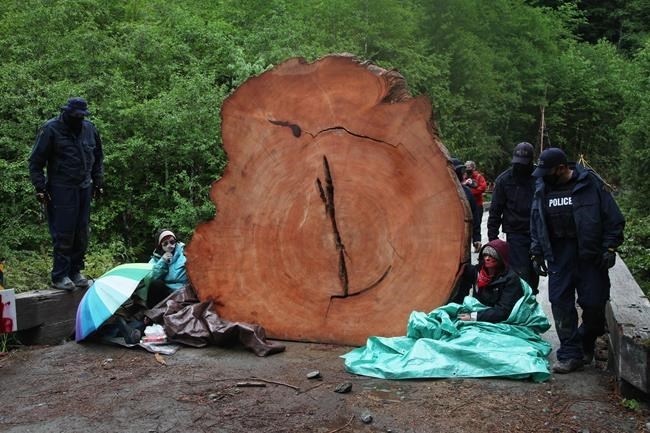In a move designed to equip the province with the best information possible when dealing with the contentious issue of old-growth forests, the government has established an independent old-growth technical advisory panel.
With a directive of using the best science available, the five-member panel is expected to advise the province on the management of old-growth forests, identify old-growth ecosystems and prioritize areas for deferral from logging.
“We are committed to a science-based approach to old-growth management, and our work with the advisory panel will help us break down barriers between the different interpretations of data that are out there,” said Forests Minister Katrine Conroy.
The panel is expected to provide maps, analysis and detailed information on the status of old-growth forest ecosystems and will help inform decisions on future deferral areas.
The decisions on specific deferrals will continue to be made at a government-to-government level with First Nations rights and title holders.
The panel, made up of Garry Merkel a professional forester and member of the Tahltan Nation, ecologist Rachel Holt, Lisa Matthaus, provincial lead for Organizing for Change, a coalition of environmental organizations, ecologist Karen Price, and landscape analyst Dave Daust, is already at work to provide information to inform the next deferral decisions.
Conroy said the province hopes to make announcements on the next stage of deferrals later this summer.
In May, three of the people who have been appointed to the panel released mapping that identified 1.3 million hectares of old forests in the province, some of which was at risk of being logged. At the time, Holt, Price and Daust said the mapping should serve as a blueprint in determining which old-growth should be set aside from logging while the province develops a sustainable management system for the forests.
The government committed to all 14 recommendations in a report last year on a strategic plan, which included logging deferrals in areas such as the Fairy Creek watershed, where dozens of people have been arrested for protesting old-growth harvesting.
The Sierra Club of B.C. said the creation of the panel could be a turning point for at-risk, old-growth forests. “This advisory panel combined with leadership from the B.C. government will allow the province to implement a precautionary approach,” said forest and climate campaigner Jens Wieting. “This requires deferring logging in all at-risk forests in the short-term to buy time to work with Indigenous decision makers on long-term designations that respect Indigenous rights and title.
“Speeding up change on the ground also requires funding for Indigenous-led conservation solutions and a just transition for forestry workers.”



